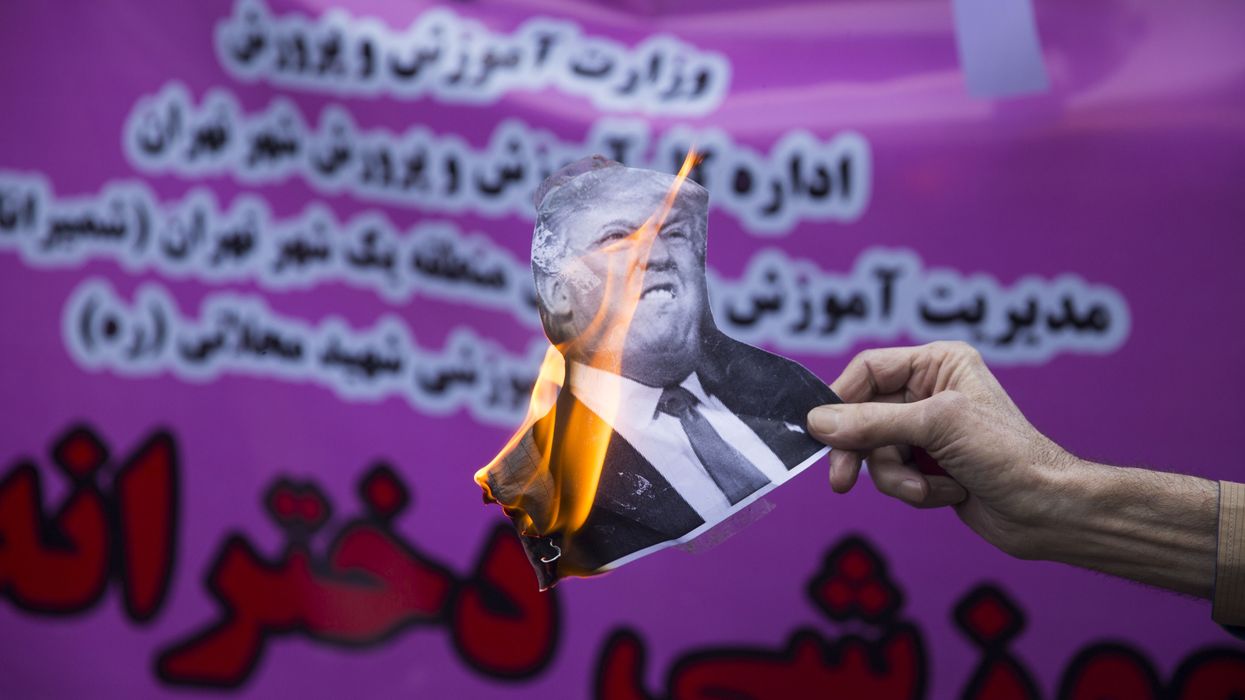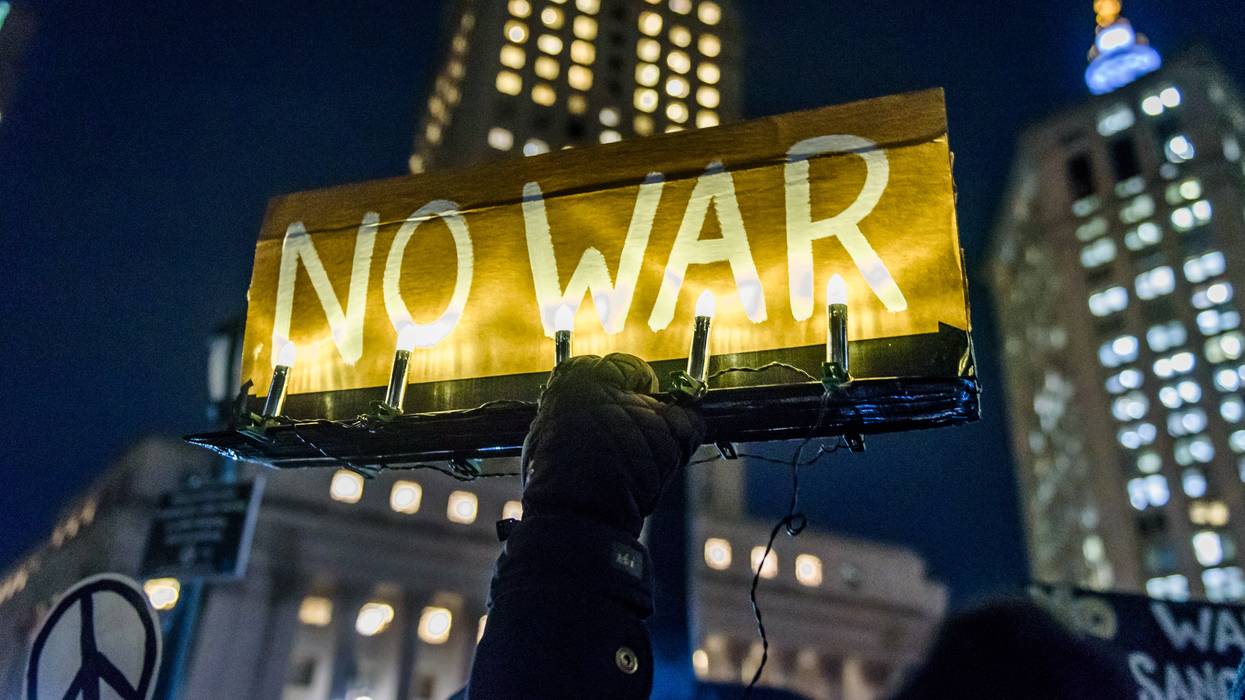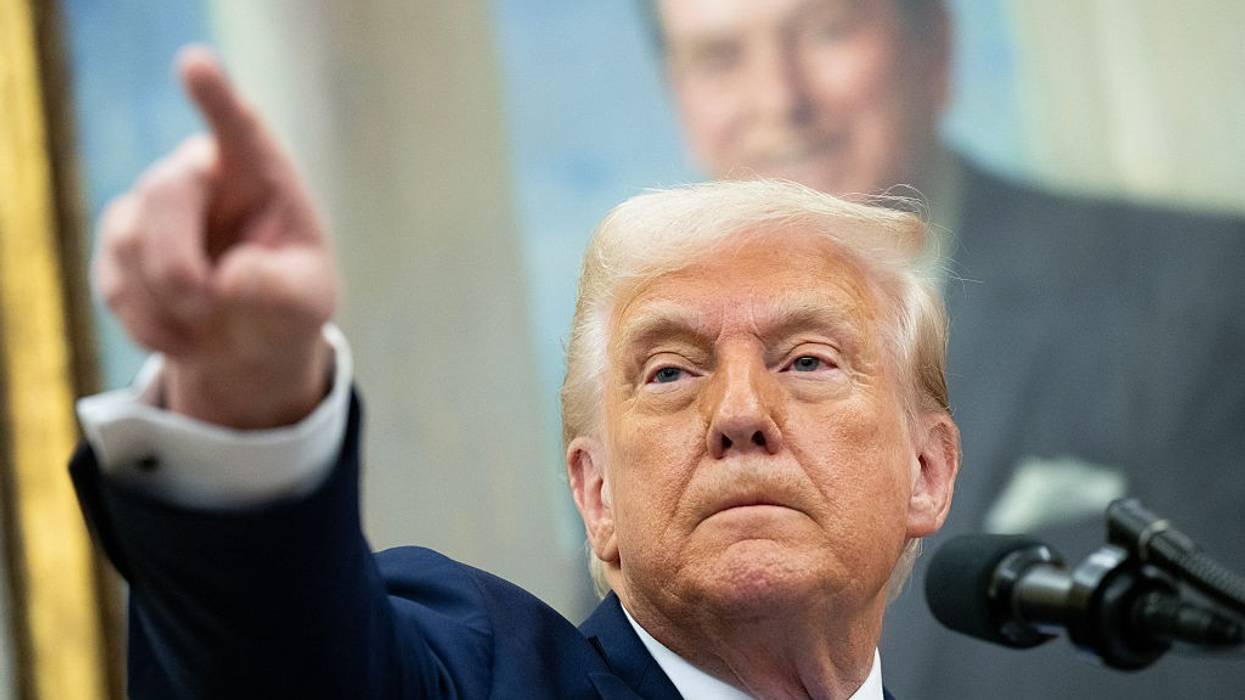Trump (and Biden) Could Have Forestalled War With Iran If They Wanted
There appears to be a bipartisan consensus in Washington against universal law-based approaches to nuclear nonproliferation through diplomacy in favor of unilateral military action.
The unprovoked attack by Israel against Iran and the tragic war that has resulted could have been avoided back in 2017 had President Donald Trump not broken off the 2015 Joint Comprehensive Plan of Action, or JCPOA—commonly known as the “Iran Nuclear Deal”—and if President Joe Biden hadn’t refused to return to it.
The agreement—signed by Iran, the United States, Great Britain, France, Germany, Russia, and China, and approved by the United Nations—reduced Iran’s enriched uranium stockpile by 98% and restricted the level of enrichment to 3.67%. Given that an enrichment level of 90% is needed to build a nuclear bomb, it made it impossible for Iran’s uranium to be weaponized.
Under the deal, Iran also reduced its number of centrifuges (used to enrich uranium) to a little more than 5,000, which is far below the number that would be needed to achieve anything close to the 90% level. Additionally, the agreement prevented Iran from commissioning its Arak reactor, which is capable of producing plutonium, and restricted research and development activities in other nuclear facilities. It also cut off all of Iran’s other potential pathways to obtaining a nuclear weapon.
In effect, the United States is demanding a kind of nuclear apartheid, where allied governments can develop nuclear weapons in defiance of international law while supporting the use of military force against countries like Iran which simply have the potential to develop nuclear weapons.
In short, the agreement made it physically impossible for Iran to build a single atomic bomb. The agreement also imposed one of the most rigorous inspection regimes in history, with international inspectors monitoring Iran’s nuclear program at every stage: uranium mining and milling, conversion, enrichment, fuel manufacturing, nuclear reactors, and spent fuel, as well as any site—military or civilian—they considered suspicious.
There were no requirements that Israel, Pakistan, India, the United States, or any other nuclear power reduce their arsenals in return. Iran agreed to this one-sided proposal only in return for some relief of draconian sanctions that had been imposed, with U.S. encouragement, by the international community. When Trump broke the agreement in 2018 and reimposed sanctions—essentially forcing other nations to do so as well under threat of punishing any company or government that refused, resulting in devastating impacts on the Iranian economy—Iran no longer had any obligation or incentive to remain in compliance. While all the evidence seems to indicate that Iran’s nuclear program thus far is only for civilian purposes such as medicine and energy production, the abrogation of the agreement has allowed the country to process uranium to a level that today could potentially be diverted to military applications if Iran decided to go in that direction.
Trump insisted at the time that he could somehow make a better deal, but did not make any serious attempt to do so. In my 2019 meeting in Tehran with then-Foreign Minister Javad Zarif, he described how the JCPOA was the result of a decade of posturing and two years of intense, painstaking negotiations, during which he and U.S. Secretary of State John Kerry met no fewer than 50 times to hammer out every line of the agreement. It is doubtful that Trump was ever serious about a negotiated settlement, preferring to set up talks which appear to have lulled Iran into thinking its military leaders and scientists were not at risk and thereby leaving them vulnerable to Israel’s initial devastating surprise attack.
In short, if Trump was really concerned about Iran getting a nuclear bomb, he would not have ended the agreement. And if Israeli Prime Minister Benjamin Netanyahu was really concerned about that possibility, he wouldn’t have supported Trump’s doing so.
So, Israel’s U.S.-backed war on Iran is not actually about stopping Iran from potentially developing a nuclear weapon. Indeed, Israeli strikes have been hitting scores of sites completely unrelated to Iran’s nuclear industry—including the studios of the national television station. It would appear to primarily be about weakening its stronger regional rival. As unpopular as the autocratic regime in Iran is among the Iranian people, they are uniting in opposition to the devastating attacks on their cities.
While some congressional Democrats have spoken out against any direct U.S. involvement in the war, their leaders have been lining up in support of Trump and Netanyahu. Senate Democratic leader Chuck Schumer, who once opposed the JCPOA, insisted that, despite the fact that Israel started the war, “Israel has a right to defend itself.” Just over a week ago, he was criticizing Trump for even engaging in negotiations with Iran.
Similarly, House Democratic leader Hakeem Jeffries has refused to criticize the Israeli attack or call for a return to the JCPOA, echoing his 2023 statement: “Our commitment to Israel’s security is ironclad.” Although Iran has no capability of striking anywhere outside of the Middle East, Jeffries claimed, “The Iranian regime poses a grave threat to the entire free world.”
Other Democrats have also rushed to Netanyahu’s defense, with Senator John Fetterman of Pennsylvania posting on social media, “I fully support this attack. Keep wiping out Iranian leadership and the nuclear personnel. We must provide whatever is necessary—military, intelligence, weaponry—to fully back Israel in striking Iran.” Meanwhile, Representative Richie Torres of New York insisted on X, “Israel is not the aggressor. It is defending itself.”
This U.S.-backed war of aggression could push the regime to actually move towards developing nuclear weapons as a deterrent against future attacks.
These politicians have not taken such positions due to political pressure. A May 2025 poll regarding Iran’s nuclear program showed fewer than 15% of Americans, including less than a quarter of Republicans and only 5% of Democrats, supported military action. Overwhelming majorities of Americans have long preferred diplomacy.
Despite this, there appears to be a bipartisan consensus in Washington against universal law-based approaches to nuclear nonproliferation through diplomacy in favor of unilateral military action.
For example, Iran and many Arab states have gone on record supporting the establishment of a Nuclear Weapons-Free Zone (NWFZ) for the entire Middle East, similar to already-existing NWFZs in Africa, Latin America, Central Asia, Southeast Asia, the South Pacific, and Antarctica. The leadership of both political parties in Washington, however, have consistently opposed this, since it would require Israel to rid itself of its nuclear arsenal and prohibit the United States from bringing nuclear weapons into the region on its planes and ships.
Despite trying to justify targeting Iran due to its violations of U.N. Security Council (UNSC) resolutions regarding its nuclear program, the United States has blocked the United Nations from enforcing UNSC resolution 487, which requires Israel to place its nuclear facilities under the trusteeship of the International Atomic Energy Agency.
UNSC resolution 687, which laid out the international community’s demands for Iraqi disarmament in 1991, also called for “establishing in the Middle East a zone free from weapons of mass destruction and all missiles for their delivery.” Though Iraq was in full compliance of this resolution, as noted by the International Atomic Energy Agency (IAEA) at the time, the Bush administration’s false claims they were not were used as an excuse to invade and occupy that oil-rich country in 2003.
Another United Nations agreement, the Nuclear Nonproliferation Treaty (NPT), normally allows countries to reprocess uranium, though the IAEA put special restrictions on Iran as punishment for not reporting certain research back in the 1990s. What few American politicians are willing to acknowledge, however, is that the NPT—in addition to preventing new countries from developing nuclear weapons—requires the existing nuclear powers “to pursue negotiations in good faith on effective measures relating to cessation of the nuclear arms race at an early date and to nuclear disarmament, and on a treaty on general and complete disarmament under strict and effective international control.” In other words, the United States—along with other nuclear powers—are themselves in defiance of the NPT.
In effect, the United States is demanding a kind of nuclear apartheid, where allied governments can develop nuclear weapons in defiance of international law while supporting the use of military force against countries like Iran which simply have the potential to develop nuclear weapons.
This will not prevent the spread of nuclear weapons. Indeed, given that it is highly unlikely that Israel can completely destroy Iran’s nuclear facilities or kill all of its scientists, this U.S.-backed war of aggression could push the regime to actually move towards developing nuclear weapons as a deterrent against future attacks, which until now it has refrained from doing. They can only compare the fates of Iraq, which disarmed as required but was invaded anyway, with the regime in North Korea, which developed nuclear weapons and is still in power.


